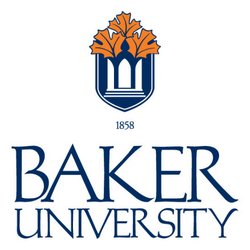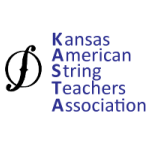
President-Elect, Oklahoma Kodály Educators
As we reach the midpoint of the school year, teachers around the state and country are re-evaluating curriculum, literature choices, enrollment numbers, schedule changes, etc. Some teachers are also evaluating their personal needs: “I did not have enough time with my family this fall.” “Am I ready for another semester?” “Do I want to keep teaching?” “Am I burnt out?”
The phenomenon of burnout was first identified by Maslach in the 1970s and 80s as “a state of exhaustion in which one is cynical about the value of one’s occupation and doubtful of one’s capacity to perform.” Maslach realized people in all occupations could experience burnout and identified certain conditions that could lead to it. These conditions included
- work overload
- lack of control
- negative peer relations
- lack of supervisor support
- lack of workplace rules, regulations, and procedures.
Maslach also suggested that those in educational institutions have the added burden of community approval and after-hours work duties resulting in job spillover (Maslach, 1982). Music teachers, with our busy schedules, extra rehearsals, nighttime commitments, and extra paperwork, are prone to burnout.
As I approached this school year, I had a personal goal to protect myself from burnout. In my situation, extra duty issues were contributing to my work overload. Chaotic passing periods and loose procedures in the classroom (i.e., lack of workplace rules, regulations, and procedures) were adding to my burnout risk. I knew my year would be busy, so I wanted to lessen these environmental stressors and protect myself from burnout.
First, I took steps to have more control over the extra duty schedule and lessen my work overload. In my building, teachers are expected to monitor breakfast, car line drop off, lunch/recess, and bus/dismissal time. In the past, these duties were rotated throughout the staff so that no one ever felt they were stuck with the most stressful or longest extra duty. Unfortunately, the duty rotation created changing expectations and chaos as the students adjusted to new teachers every week.
Morning breakfast was a big stressor for me and I dreaded breakfast duty appearing on my calendar. I had to arrive at school early on those mornings and put on my “mean teacher” face to deal with the cafeteria chaos. First hour starts right at the end of breakfast which meant I often carried “mean teacher” into the classroom. And, on some days, “mean teacher” would be with me all day long.
We had a change of administration this year and a change in the approach to duties. I signed up for the morning cafeteria duty. I knew it would mean early mornings every morning, but it also meant I did not have to do lunch or after school duty – freeing me up for rehearsals during lunch and after school. Also, I thought that if I had control of breakfast every day, I could set procedures in place and everything would run smoothly. In the end, I was assigned breakfast duty with another teacher and we switch off every week. We set procedures during the first days of school when we were on duty together. We both follow the same expectations week to week and breakfast is no longer chaotic or stressful. Even when I have duty, I rarely feel rushed and upset by the start of first hour. The change has been amazing and I can feel the positive impact all day long.
The second area that I could foresee impacting my burnout was the lack of rules and procedures in the hallways during passing period. My building is a 5th and 6th grade center serving a rapidly growing population. The hallways are noisy and almost over-crowded with over 600 students. The students must walk, keep their hands to themselves, and pay attention to others during passing period. Of course, there are those who push the envelope and try to run or have their phones out during passing (neither is allowed). In previous years, I would text names of “runners” to the principals and let them deal with punishments. But this year, with the blessing of administration and the rest of the staff, I started issuing lunch/recess detentions for running and cell phone violations. My room is in the middle of the building and isolated; therefore, I monitor a lot of students by myself. There are now immediate consequences behind my “walk, don’t run” and “put the phone away” statements. I rarely have to get onto a student more than once and, if I do, it’s with a detention slip in my hands. Again, the change has been amazing! Passing period, while still loud and crowded, doesn’t seem as dangerous as it did during the first week of school. And I appreciate being able to stand at my door and watch students walk by, instead of getting onto them for every procedural violation.
Teachers do not always have the ability to influence building procedures and expectations. However, in my experience, being able to change things in the building has greatly impacted my overall teaching environment and kept me from burning out. It is useful to contemplate your school building and see if there are things you can change to proactively lessen your burnout risk. Are cell phones making you crazy? Maybe you could institute a cell phone drop-off area in your room. Are you running out late to recess duty every day? Next year, get in on the schedule planning process so you have time to use the restroom before going out to recess. Building procedures and duty expectations are often overlooked as not important – however, control in the workplace does help teachers combat burnout.
If you cannot change things throughout your building, then proactively start in your own classroom. What irritates you during class? For me, one problem is the electric pencil sharpener. It’s extremely loud and when the students sharpen pencils during class, I can’t talk over it. The students also tend to leave their pencils in the sharpener longer than needed because it’s so much fun to use. At the end of last year, I was visiting with some of the math teachers and they were complaining about the sharpeners. Then one said, “The students know they are supposed to sharpen their pencils when they come into class, not during class. Why can’t they follow procedures?” Of course, that was a lightbulb moment for me. I instituted the same procedure at the start of this school year. If the students happen to forget, I say something like, “Remember everyone, we sharpen pencils at the start of class, just like in math class.” For the most part, I no longer fight the sharpener noise during class and my teaching environment is improved. Small irritations, which seem so trivial and inconsequential, will add up and contribute to burnout.
Another area that could be examined for burnout triggers is a teacher’s class schedule workload. This year, I allowed administration to assign two theatre arts classes to my schedule in the fall semester. That decision resulted in two different musical performances three weeks apart. Because I was anticipated the possibility of burnout, I made sure to ask others for help and cleared my calendar of any other commitments during the stressful three weeks. However, in the future, I will not have two musicals in the same semester again. This exhausting learning experience has reminded me again that it’s okay to say “no” to others, including administration. As music teachers, it’s incredibly important that we keep our workloads manageable. One way to advocate for yourself is by tracking your hours and commitments so that you have a record to show to administration. Many principals expect a certain amount of performances and events because “that’s what we’ve always done.” However, if the situation is exhausting the teacher, the workload must be re-evaluated.
There is an alternative to burnout – work engagement. According to Maslach & Leiter (1997), work engagement occurs when a person has
- a sustainable workload
- feelings of choice and control
- recognition and rewards
- a sense of community
- fairness, respect, and justice
- meaningful and valued work
Studies conducted with teachers in Finland have found teachers with high levels of work engagement have improved retention rates and better health outcomes (Hakanen, Bakker, & Schaufeli, 2006). The teachers are also able to maintain engagement while dealing with discipline issues (Bakker, Hakanen, Demerouti, & Xanthoupoulou, 2007).
My research with elementary music educators has indicated that support, particularly from administration, can influence work engagement (Maughan, 2012). Also, there is a significant correlation between workload satisfaction and work engagement (Maughan, 2013). I did not include workplace rules, regulations, and procedures in my research, but my own experience indicates those factors must be present to prevent burnout.
Music teachers have endless demands on their time and talents. In addition to the classroom, elementary music teachers have many extra duties that take time and patience while secondary teachers have endless extra demands for their ensembles. There is also a curriculum to plan and concerts to prep. Many of us also contribute to church music, community events, etc., while working at school. Burnout is a constant threat to the profession. However, by controlling the environment, asking for help, and saying “no”, teachers can improve their overall professional atmosphere and engage in their work.
References
Bakker, A. B., Hakanen, J. J., Demerouti, E., & Xanthopoulou, D. (2007). Job resources boost work engagement, particularly when job demands are high. Journal of Educational Psychology, 99(2), 274–284. doi:10.1037/0022-0663.99.2.274
Maslach, C. (1982). Burnout: The cost of caring. Englewood Cliffs, NJ: Prentice Hall.
Maslach, C., & Leiter, M. P. (1997). The truth about burnout: How organizations cause personal stress and what to do about it. San Francisco, CA: Josey-Bass.
Maughan, E.G. (2013). Factors Affecting Elementary General Music Educators’ Work Engagement (Doctoral Dissertation).























